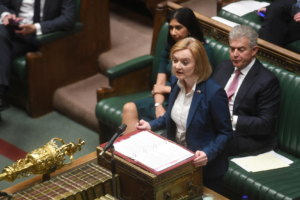LISBON, May 15 (Reuters) – Portugal’s parliament on Wednesday dismissed a proposal by the far-right to charge the country’s president with treason over his support for reparations for transatlantic slavery and colonialism.
President Marcelo Rebelo de Sousa said last month there was a need to addressthe wrongs of the past, sparking a national debate and strong criticism from right-wing parties, particularly from far-right Chega.
Advertisement · Scroll to continue
Rebelo de Sousa suggested cancelling the debt of former colonies and providing financing.
After the remarks, the government, which has executive powers, said it would not initiate any reparation process and Chega – Portugal’s third-largest party – suggested a criminal lawsuit against the president for treason.
“Parties are free to propose whatever they want,” Rebelo de Sousa said, adding it was “part of democracy”.
Advertisement · Scroll to continue
For over four centuries, at least 12.5 million Africans were kidnapped, forcibly transported by mainly European ships and merchants, and sold into slavery.
Portugal trafficked nearly 6 million Africans, more than any other European nation, but has done little to confront its past.
Instead, the colonial era, during which countries including Angola, Mozambique and Brazil were subjected to Portuguese rule, is often perceived as a source of pride.
“The president’s statements represent a profound betrayal of our history,” Chega’s leader Andre Ventura told parliament in a debate called to discuss the issue.
All parties, including the ruling Social Democrats (PSD), said they would not support Chega’s proposal. Without that support, the case cannot move forward.
Left Bloc lawmaker Joana Mortagua said that Black people still suffer the legacies of transatlantic slavery and colonialism, including racism. “We are not just talking about the past,” she said.
PSD lawmaker Regina Bastos argued the past should be left behind and priority should be given to what can be done now. Bastos and other lawmakers accused Ventura of political opportunism.
Foreign Minister Paulo Rangel reiterated the government’s position but said there would be “apologies” when appropriate.
The idea of paying reparations or making other amends for transatlantic slavery and colonialism has a long history and remains deeply disputed, but has been gaining momentum worldwide.
Coming soon: Get the latest news and expert analysis about the state of the global economy with Reuters Econ World. Sign up here.
Reporting by Catarina Demony; Editing by Alexandra Hudson
Our Standards: The Thomson Reuters Trust Principles.
Portugal-based multimedia correspondent reporting on politics, economics, the environment and daily news. Previous experience in local journalism in the UK., co-founded a project telling the stories of Portuguese-speakers living in London, and edited a youth-led news site.




